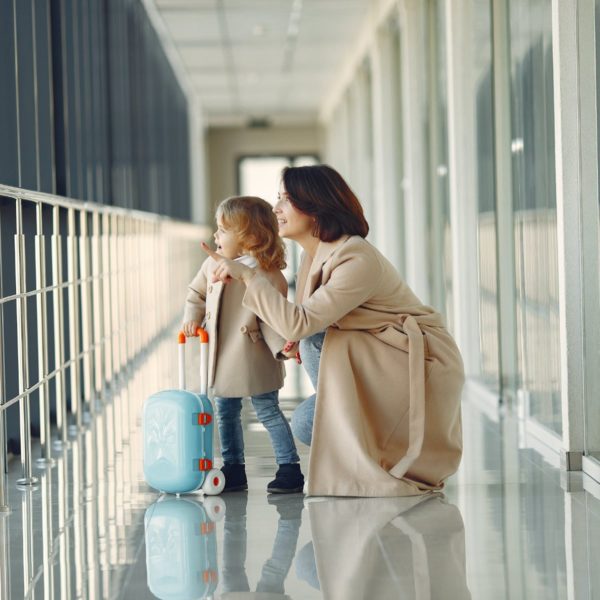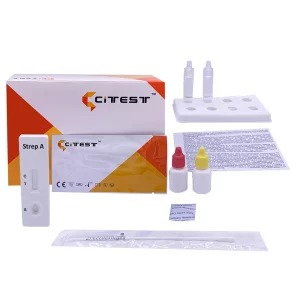Guide For Entering Canada
With COVID-19 still circulating in Canada and internationally, the situation can vary considerably between countries. If you’re planning to travel abroad or return to Canada, you must know the travel restrictions and public health guidelines to protect yourself and limit the spread of COVID.
Read on for a complete guide to COVID-19 travel restrictions for Canadians according to government guidelines.

Canadians and foreign nationals can enter Canada if they obey COVID-19 travel guidelines. Travellers fall into three categories:
Canadian citizens, persons registered under the Indian Act, permanent residents, and refugees
Fully vaccinated foreign nationals and their dependents
Foreign nationals who aren’t fully vaccinated but fulfil the entry requirements
Here are the guidelines for entering Canada after spending time abroad. To make things easier, we’ve divided the guidelines for fully vaccinated travellers and those who don’t qualify as fully vaccinated.
Guide For Vaccinated Travellers
If you’re a fully vaccinated traveller, you don’t need to do a pre-entry test when entering Canada. Here are the requirements to be considered a fully vaccinated traveller:
Have received at least two doses of an accepted COVID-19 vaccine (or one dose of the Johnson & Johnson vaccine)
Received your second vaccine dose at least 14 calendar days before entering Canada
Demonstrate no symptoms or signs of COVID-19
Have an ArriveCAN receipt with the letter A, I, or V beside your name after uploading your proof of vaccination
Note that having partial vaccination or being a recovered COVID-19 patient with one dose does not qualify you as a fully vaccinated traveller.
What To Prepare At The Border
To qualify for a fully vaccinated traveller exemption, you need to prepare these items and documents for your ArriveCAN submission:
ArriveCAN receipt with the letter A, I, or V beside your name
Proof of vaccination uploaded to ArriveCAN
Certified translation in English or French, if your document/s aren’t in either language
Travel details and documents
Note that you can’t qualify for a fully vaccinated traveller exemption if you don’t complete your ArriveCAN submission within 72 hours before your arrival.
Random Arrival Testing
You may be subject to a random arrival test when entering Canada by land or air. Note that fully vaccinated travellers aren’t exempt from this requirement. However, you can get exempt from random testing if you’ve recently recovered from COVID or entered Canada by boat or ferry.
If you enter Canada by air, you can pick up a self-swab kit at select locations or complete a test at select clinics near the airport. If you arrive in Canada by land, you’ll be given a self-swab test kit and directed to complete it during a telehealth appointment.
You must complete and submit the test by the end of the next day. You may be subject to fines or other legal repercussions if you miss the deadline.
After Arriving In Canada
Once in Canada, you must follow these essential public health guidelines:
Report any positive results from government-mandated COVID tests.
Wear masks during the entirety of your travel.
If provincial or territorial travel rules differ from federal regulations, follow the stricter rules. While masks aren’t required after arrival, we recommend wearing them because they’re effective public health measures.
Guide For Unvaccinated Or Partially-Vaccinated Travellers
Before returning to Canada, you need to prepare these documents for your ArriveCAN submission:
Travel details
Valid negative test result
Suitable 14-day quarantine plan, including the place of quarantine and access to daily necessities
Submit this mandatory information via the ArriveCAN mobile app before entering the country. Otherwise, you may face delays and possible fines. Unvaccinated children under five years old are exempt from pre-entry test requirements. Children under 12 years old are similarly exempt from a test as long as a fully vaccinated adult accompanies them.
What To Do On Arrival
When you enter Canada, you must complete two COVID-19 tests through approved test providers. You must do the first one within one day of arrival and the other on day eight of your quarantine period.
If you arrive in Canada by air, you’ll get information on your COVID test obligations by email. Follow the instructions and complete your COVID testing with an approved test provider or a self-swab test.
If you arrive by land, you’ll receive two self-swab kits. You must complete these self-tests via a virtual telehealth appointment at your travel destination. Note that the Government of Canada only accepts test results from the provided kits.
Mandatory Quarantine
As an unvaccinated traveller, you need to quarantine for 14 days, starting on the day of arrival. You must make quarantine plans yourself and submit them to ArriveCAN before travelling to Canada.
You must complete a second test with the provided self-swab kit during quarantine. Failure to do so may result in fines or other legal consequences.
-
$30
-
$30
Testing And Quarantine Exemptions
-
Boaters: Fully-vaccinated people entering by water may be exempt from arrival and day-8 testing.
-
Children: Children under five years of age are exempt from pre-entry, arrival, and day-8 testing regardless of vaccination status
-
Aircrew members and armed forces: Aircrew and armed forces personnel may be exempt from all testing and quarantine requirements.
-
Cross-border workers: People who cross the Canadian border regularly for work may be exempt from all testing and quarantine requirements.
-
Canadians denied entry to other countries: Citizens and permanent residents who were told to return to Canada by air aren’t required to submit pre-entry test results.
- Essential service truck drivers: Vaccinated truck drivers delivering essential medical supplies are exempt from all testing and quarantine requirements.
- Visitors for funerals and compassionate reasons: People visiting Canada to attend funerals or tend to sick relatives may receive limited quarantine release.
-
Invited individuals: People invited by the Minister of Health or a Government of Canada official to help with the COVID-19 response are exempt from arrival testing, day-8 testing, and quarantine requirements.
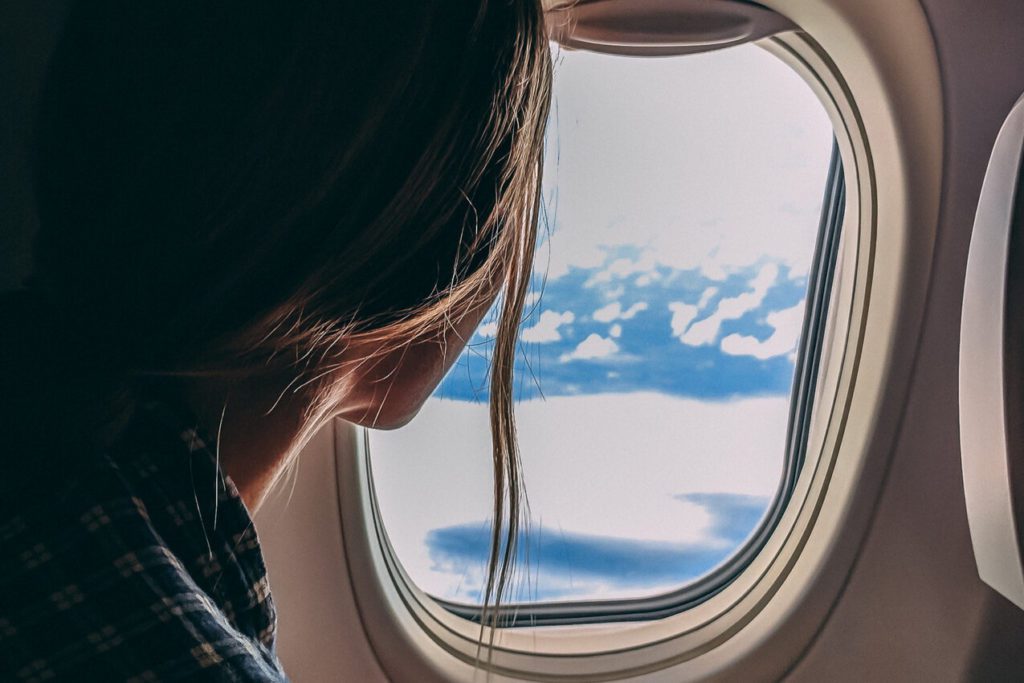
Arrival COVID Testing And Quarantine Guidelines
When entering Canada’s borders, you may be subject to COVID tests whether you’re a vaccinated or unvaccinated traveller. In some cases, you must enter quarantine or isolation. These tests and measures are meant to track and limit COVID’s spread into Canada and identify new concern variants.
Here’s a guide to the mandatory COVID testing and quarantine in Canada:
Arrival COVID Tests
Both fully vaccinated and unvaccinated or partially-vaccinated travellers may be required to take a COVID test. Here, we split the guide into two parts, one for each group:
Fully Vaccinated Travellers
If you arrive in Canada by air or land, you may be selected for a random COVID test. You don’t have to wait for the random COVID test results to travel to your destination.
Here’s how to complete your random arrival test if you entered Canada by air:
Check your email to see if you’re selected for random arrival testing.
Choose in-person, self-swab, or virtual testing with a healthcare professional.
Register with the province’s approved test provider.
Schedule a test date.
Complete the test by the day after your arrival.
Wait up to four days for your test results.
If you arrive through a land border crossing, here’s how to complete the random arrival test:
Receive a self-swab kit from the border services officer.
Register with the province’s test provider.
Schedule a virtual telehealth appointment with a health care provider.
Follow the instructions provided in your self-swab kit.
Complete the test by the day after your arrival.
Wait up to four days for your test results.
If you test positive, you must go into a ten-day quarantine.
Unvaccinated Or Partially Vaccinated Travellers
If you’re unvaccinated or partially vaccinated, you must submit a valid negative test result through ArriveCAN before you arrive in the country. Once you arrive in Canada, you must complete an arrival COVID test and enter quarantine.
Here are the steps to completing your random COVID test for air travellers:
Check your email notification for mandatory testing instructions.
Choose to perform in-person, self-swab, or virtual testing with a healthcare professional.
Register with the province’s test provider.
Schedule your test.
Complete the test by the end of the next day.
Wait up to four days for your test results.
For land travellers, here’s how to complete the test:
Receive two self-swab kits from the border services officer.
Register with the local province’s test provider.
Schedule a virtual testing appointment.
Follow the instructions in your test kit.
Complete the test by the end of the next day.
Wait up to four days for your results.
If you tested positive for COVID, you must contact the Public Health Agency within 24 hours.
Mandatory Isolation
Before travelling to Canada as an unvaccinated person, you must submit a suitable plan for quarantine to ArriveCAN. Your chosen quarantine facility must:
Allow you to stay for 14 days or possibly more
Provide access to daily necessities like food, water, and medicine
Prevent contact with other people outside your travel group
Have separate bedrooms and bathrooms for each group or family member
If you don’t have a place that fulfills the above requirements, the Government of Canada may transport you to a designated quarantine facility as a last resort.
According to government regulations, your isolation period begins on arrival and lasts 14 days. You must also complete a second test on the eighth day and answer calls from Government of Canada officials.
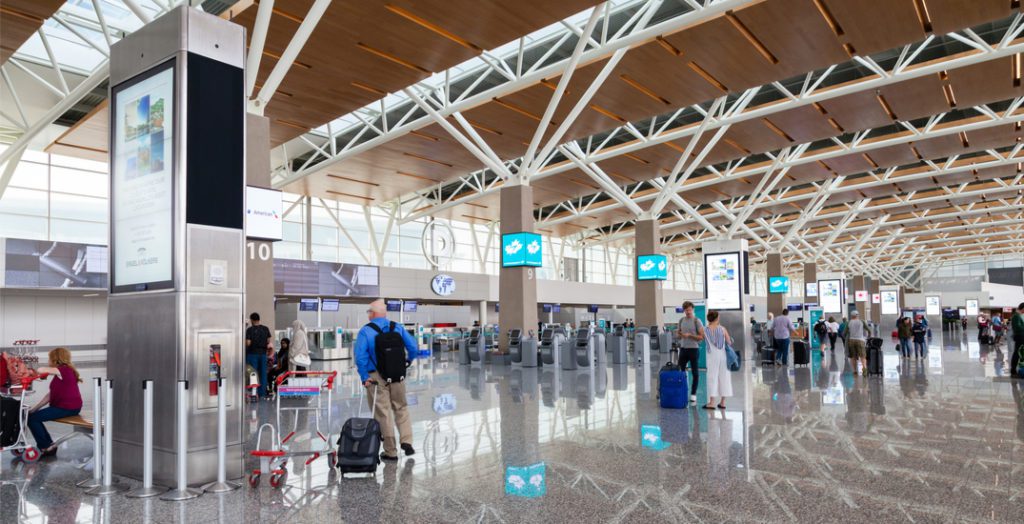
International Travel For Canadians
COVID-19 still circulates worldwide, and the pandemic situation may vary depending on your destination. If you’re planning to travel, you should be vigilant and take all necessary protective measures to limit the disease’s spread.
Here’s a guide on what to do before, during, and after travelling internationally:
Preparations Before Travel
You shouldn’t travel abroad if you are experiencing symptoms of COVID-19, have tested positive in the past ten days, or have been in close contact with a COVID-19 patient or suspect.
If you feel well and plan to travel abroad, you need to:
Check the COVID-19 vaccine requirements and Canadian travel advisory levels at your destination.
Meet all requirements to board a plane in Canada, if travelling by air.
Review Canada’s re-entry requirements.
Save the contact for the Canadian embassy or consulate at your destination.
Review your travel insurance.
What To Do While Travelling
The COVID-19 situation at your destination may change, even if you’ve monitored it closely before your trip. Here’s what you must do while at your destination:
Follow local public health regulations.
Learn where you can find medical services in your area.
Wear a mask, even if the area doesn’t require it anymore.
Avoid crowded indoor or outdoor places, if possible.
Returning To Canada
We recommend delaying your return to Canada if you:
Develop symptoms of COVID-19
Test positive for COVID-19 in the last ten days
Have been in close contact with a COVID-19 patient or suspect
If you haven’t had any encounters with COVID-19 during your travel abroad, you should double-check Canada’s entry requirements. If you’re an unvaccinated traveller, you must take a COVID-19 test and submit a negative result before your trip.
COVID Testing For Canadians Travelling Abroad
Canadian travellers coming from abroad get COVID tests for free, provided by the Government of Canada. However, Canadians planning to travel abroad need to purchase their own tests. Here, we cover why you need COVID testing to go abroad and where to get tested.
When Do You Need COVID Tests To Travel?
Generally, you must get tested for COVID when travelling abroad by sea, air, or land. While Canadian flights and trains no longer require proof of vaccination or testing, your destination may require a pre-entry test result.
Cruise ship travel requirements tend to be stricter than air or land travel. You must be fully vaccinated and provide one of the following:
Negative antigen test/rapid test result taken no more than two days before boarding
Negative molecular test result taken within 72 hours of boarding
Positive test result taken between 10 and 180 days before boarding
Accepted Types Of COVID Tests
COVID travel regulations require you to take one of these two tests:
A molecular test of the following type:
Polymerase chain reaction (PCR) test
Nucleic acid test (NAT)
Nucleic acid amplification test (NAAT)
Reverse transcription loop-mediated isothermal amplification (RT-LAMP)
Buy Rapid COVID Tests in Canada
While scientists are still studying the phenomenon of long COVID, our team at Rapid Test & Trace pledges to help stop the spread of COVID-19.
At Rapid Test & Trace, we are Canada’s most-trusted source of quick and affordable rapid COVID tests, partnering with hundreds of organizations across the country. Navigating the process of getting tested for COVID can be confusing and stressful, especially if you need quick results for work. We make it easy, delivering rapid tests that Health Canada authorizes within two business days of purchase.
-
Sale!
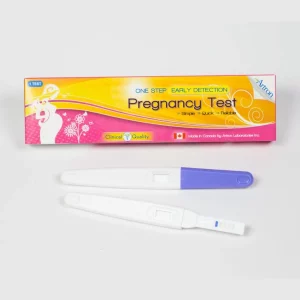 🍁 PRODUCT OF CANADA 🍁
🍁 PRODUCT OF CANADA 🍁Artron One-Step Early Detection hCG Pregnancy Test
At-home Fertility Testing Kits$7.99Original price was: $7.99.$6.45Current price is: $6.45./testAt-home Fertility Testing KitsArtron One-Step Early Detection hCG Pregnancy Test
Rated 4.00 out of 5$7.99Original price was: $7.99.$6.45Current price is: $6.45./testYou save $1.54 (19% Off) Buy Now(5 Reviews)Rated 4.00 out of 5$6.45Rapid Flu & Strep Test KitsCiTEST Strep A Rapid Test (20 pack)
$34.90/box Buy NowRated 4.80 out of 5(5 Reviews)Rated 4.80 out of 5$34.90
Our goal at Rapid Test & Trace is to provide Canadians with tools to protect themselves and others. Order rapid tests through our online store or contact us for a quote.
FAQs
Do I need to take a COVID test before entering Canada?
You only need to take a pre-entry COVID test if you’re not fully vaccinated. A fully vaccinated Canadian citizen, permanent resident, or person registered under the Indian Act is exempt from pre-entry test requirements.
What kind of COVID test is accepted by the Canadian government?
The Canadian government accepts both antigen and molecular COVID tests.
Who can enter Canada without being fully vaccinated?
Only citizens, people registered under the Indian Act, permanent residents, and refugees are allowed to enter Canada without being fully vaccinated. Unvaccinated or partially vaccinated foreign nationals can only enter the country in specific circumstances.
Where can I spend my mandatory quarantine period?
You can spend your mandatory quarantine period anywhere that provides access to daily necessities, have separate bed and bath arrangements, prevent contact with others, and let you stay the entire quarantine period of 14 days (possibly more). Your quarantine facility options include but are not limited to houses, apartments, hotels, and dormitories.
Who can enter Canada without being fully vaccinated?
Only citizens, people registered under the Indian Act, permanent residents, and refugees are allowed to enter Canada without being fully vaccinated. Unvaccinated or partially vaccinated foreign nationals can only enter the country in specific circumstances.
Are travel COVID tests free?
The government provides free COVID testing for arriving Canadians. However, you must pay for pre-entry tests before entering Canada or travelling abroad.
What happens if I fail to comply with the Quarantine Act?
Failure to comply with the emergency order under the Quarantine Act is an offence and may lead to fines, imprisonment, or both.


